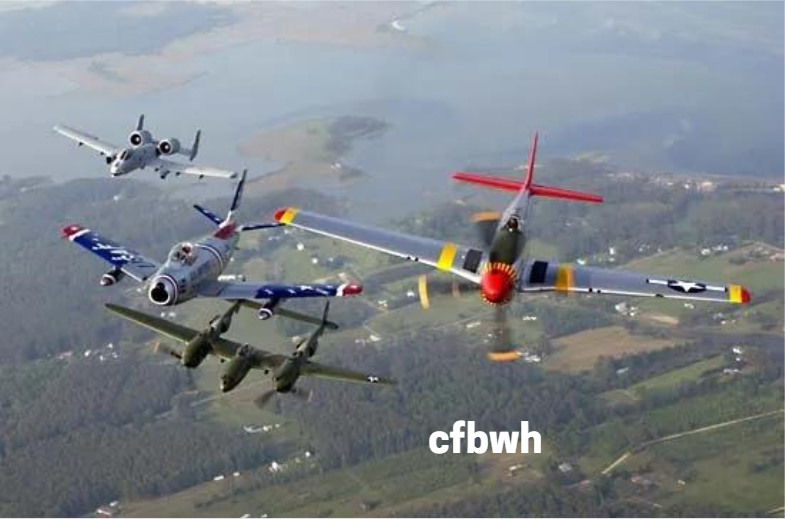Comprehensive Guide to cfbwh: Flight Status, Tracking, and Historical Data
Contents
Introduction
In the world of aviation, keeping track of flight statuses, schedules, and historical data is essential for passengers, aviation enthusiasts, and industry professionals alike. The keyword “cfbwh” refers to a specific flight with its own unique data points, including scheduled, estimated, and actual departure and arrival times.
This article aims to provide a comprehensive and informative guide on cfbwh, offering detailed insights, analyses, and interpretations that go beyond existing information to help you make the most of this flight tracking resource.
Understanding cfbwh
What is cfbwh?
cfbwh is an identifier used in flight tracking to monitor the status, tracking, and historical data of a specific flight. This includes information on the scheduled, estimated, and actual departure and arrival times, as well as other pertinent details such as flight routes, delays, and more.
Importance of Flight Tracking
Flight tracking is crucial for various reasons:
- Passenger Convenience: Passengers can plan their journeys better by knowing the exact status of their flights.
- Operational Efficiency: Airlines and airport authorities can manage operations more effectively with accurate flight data.
- Safety and Security: Real-time tracking ensures enhanced safety and security measures for flights.
- Aviation Enthusiasts: Provides detailed insights for those interested in the technical and operational aspects of aviation.
Key Features of cfbwh
Real-Time Flight Status
The core feature of cfbwh is real-time flight status tracking. This includes:
- Scheduled Departure and Arrival Times: The planned times for when the flight is expected to leave and reach its destination.
- Estimated Departure and Arrival Times: Updated estimates based on current flight progress and conditions.
- Actual Departure and Arrival Times: The precise times the flight took off and landed.
Flight Tracking
Flight tracking provides a detailed look at the flight’s journey:
- Live Flight Path: View the real-time trajectory of the flight.
- Altitude and Speed: Monitor the altitude and speed of the aircraft during the flight.
- Weather Conditions: Access information on weather conditions affecting the flight path.
Historical Data
Historical data for cfbwh includes past flight information:
- Previous Flight Records: Access records of past flights with the same identifier.
- Performance Trends: Analyze trends in flight performance over time.
- Delay Analysis: Understand the frequency and causes of delays.
Detailed Analysis of cfbwh
Real-Time Flight Status: A Closer Look
Real-time flight status is vital for passengers and airline operations. By monitoring scheduled, estimated, and actual times, you can:
- Plan Ahead: Passengers can adjust their travel plans based on real-time updates.
- Manage Delays: Airlines can manage schedules and inform passengers about delays promptly.
- Optimize Operations: Airports can optimize gate assignments and ground handling based on updated flight status.
Flight Tracking: Beyond the Basics
Flight tracking involves more than just monitoring a flight’s progress. It provides a comprehensive view of the flight’s operational aspects:
- Route Optimization: Analyze the flight path for potential optimizations and deviations.
- Safety Monitoring: Ensure the flight adheres to safety protocols and air traffic control instructions.
- Environmental Impact: Track the environmental impact by monitoring fuel consumption and emissions.
Historical Data: Insights and Trends
Historical flight data is invaluable for several reasons:
- Performance Analysis: Analyze the performance of specific flights over time to identify patterns.
- Predictive Maintenance: Use historical data to predict maintenance needs and prevent issues.
- Operational Improvements: Identify areas for operational improvements based on past performance.
Advanced Features of cfbwh
Integration with Other Systems
Integration with other systems enhances the functionality of cfbwh:
- Airport Systems: Integrate with airport management systems for seamless operations.
- Airline Systems: Connect with airline reservation and operations systems for real-time updates.
- Weather Systems: Access real-time weather updates for better flight planning.
User-Friendly Interface
A user-friendly interface ensures that all users, from passengers to aviation professionals, can easily access and interpret flight data:
- Dashboard View: A comprehensive dashboard provides a snapshot of key flight metrics.
- Custom Alerts: Set up custom alerts for specific flight status changes or delays.
- Data Visualization: Use graphs and charts to visualize flight performance and trends.
Mobile Accessibility
Mobile accessibility ensures that users can track flight status and updates on the go:
- Mobile Apps: Dedicated mobile apps provide real-time updates and notifications.
- Responsive Design: A mobile-friendly website ensures easy access from any device.
- Push Notifications: Receive instant notifications about flight status changes directly on your mobile device.
Expert Tips for Using cfbwh
- Set Up Alerts: Use custom alerts to stay informed about any changes in flight status.
- Monitor Weather Conditions: Keep an eye on weather conditions that might affect your flight.
- Analyze Historical Data: Use historical data to identify patterns and plan better for future flights.
- Use Mobile Apps: Take advantage of mobile apps for real-time updates and convenient access.
- Integrate with Other Systems: For aviation professionals, integrating cfbwh with other systems can streamline operations.
Future Potential of cfbwh
Enhanced Predictive Analytics
Future developments in predictive analytics could provide more accurate estimates for departure and arrival times, as well as better insights into potential delays and their causes.
AI and Machine Learning
Artificial Intelligence (AI) and Machine Learning (ML) could further enhance the capabilities of cfbwh by:
- Predicting Maintenance Needs: Using historical data to predict when maintenance is needed.
- Optimizing Flight Paths: Suggesting optimal flight paths based on real-time data.
- Improving Operational Efficiency: Streamlining operations through advanced data analysis.
Expanded Integration
Expanding integration with other systems, such as passenger information systems and global air traffic control networks, could provide even more comprehensive data and improve overall flight management.
Frequently Asked Questions (FAQs)
What is cfbwh?
cfbwh is a flight identifier used to track the status, tracking, and historical data of a specific flight, including departure and arrival times.
How can I track my flight using cfbwh?
You can track your flight using cfbwh by visiting flight tracking websites or mobile apps that support this identifier. Enter cfbwh in the search bar to access real-time updates and historical data.
What kind of information can I get from cfbwh?
cfbwh provides information on scheduled, estimated, and actual departure and arrival times, live flight paths, altitude, speed, weather conditions, and historical flight data.
Why is flight tracking important?
Flight tracking is important for passenger convenience, operational efficiency, safety and security, and providing detailed insights for aviation enthusiasts.
Can I access cfbwh on my mobile device?
Yes, you can access cfbwh on your mobile device through dedicated flight tracking apps or mobile-friendly websites.
How can historical data from cfbwh be useful?
Historical data from cfbwh can be useful for performance analysis, predictive maintenance, and identifying operational improvements.
Conclusion
cfbwh is an invaluable tool for tracking flight status, monitoring real-time flight data, and accessing historical records. Whether you are a passenger looking to stay informed, an aviation professional managing operations, or an enthusiast interested in the technical aspects of flight, cfbwh offers a wealth of information and features to enhance your experience.
By leveraging the advanced capabilities and insights provided by cfbwh, you can ensure a smoother, more efficient, and informed journey. With ongoing developments and potential future enhancements, cfbwh is set to remain a cornerstone of flight tracking and aviation management for years to come.

